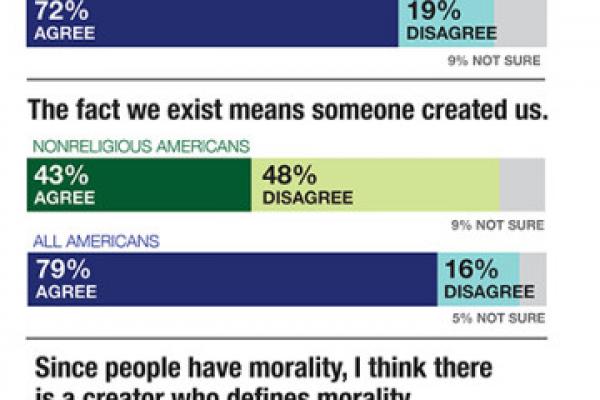Oct 7, 2015
You don’t have to believe in God or identify with any religion to see a creator’s hand in human life and morality, suggests a new survey.
LifeWay Research’s overall finding — that most Americans believe there is a creator who designed the universe and defines human morality — is not surprising. After all, 3 in 4 U.S. adults identify with a religious denomination.
The surprise is that so many people who don’t identify with a religion — so-called nones — agree.
Read the Full Article

Already a subscriber? Login
